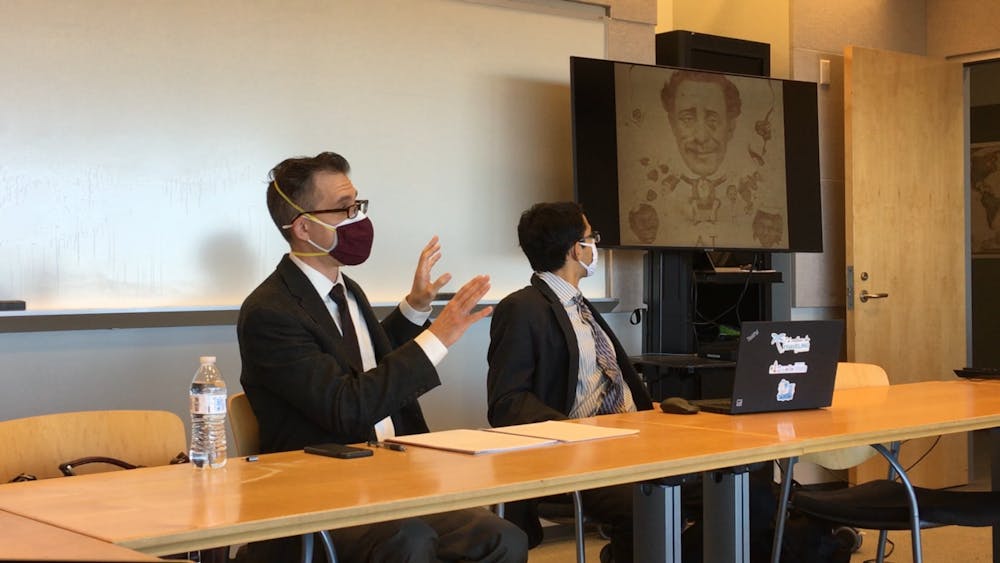Kellen Hoxworth, a professor at Florida State University, led a discussion at UNC called “Dave Carson’s Brownface Empire” on Monday to discuss the performances of Dave Carson, a comedian who built his career upon stereotypical depictions of South Asian men and women during British colonial rule of India.
Hoxworth came to UNC to participate in the Carolina Asia Center’s series “From Dave Carson to Apu: Global Circulations of Indian Brown Voice and Brownface.”
The event was proposed by Pamela Lothspeich, an associate professor in UNC's Department of Asian and Middle Eastern Studies who worked with Kevin Fogg, Carolina Asia Center's assistant director, and Krupal Amin, the Asian American Center's associate director.
They worked to contact speakers like Hoxworth, University of Virginia professor Shilpa Davé and comedian Hari Kondabolu to host discussions on the depiction of South Asians in media.
“(Fogg and Amin) were both really excited about the idea, and we worked on setting up the funding and how we could bring everyone together in the same time frame,” Lothspeich said. “I was just really amazed when I discovered Dr. Hoxworth’s work. We definitely wanted to invite him into the volume.”
During his speech, which was held at the FedEx Global Education Center and streamed live online, Hoxworth discussed the inception of brownface characters and their influence on modern perceptions of South Asian people.
“Through his performances of racial mockery, Carson incorporated South Asian subjects into the minstrel fold,” Hoxworth said. “Within minstrelsy’s economy of racial abjection, Carson circulated racial impressions of South Asians as insistently inarticulate.”
He also discussed one of Carson’s signature roles, “The Bengalee Baboo,” a parody of Indian businessmen who aspired to ascend to the class of white British colonists. Hoxworth said that Carson assuaged fears of racial upward mobility through this role, assuring white British audiences of their security in the class system.
“We get this measuring up, or failing to measure up, to the white system," Hoxworth said. "At every possible contact point, we see this inability of the Bengalee Baboo figure to navigate sexual and social circumstances, which seems to be a way of containing this anxiety of South Asian men as being a racial threat.”



